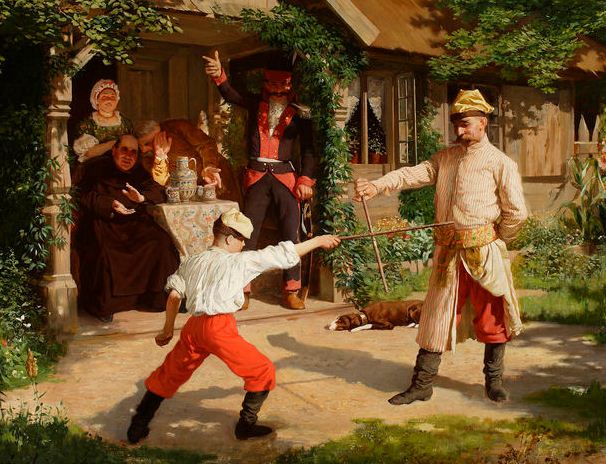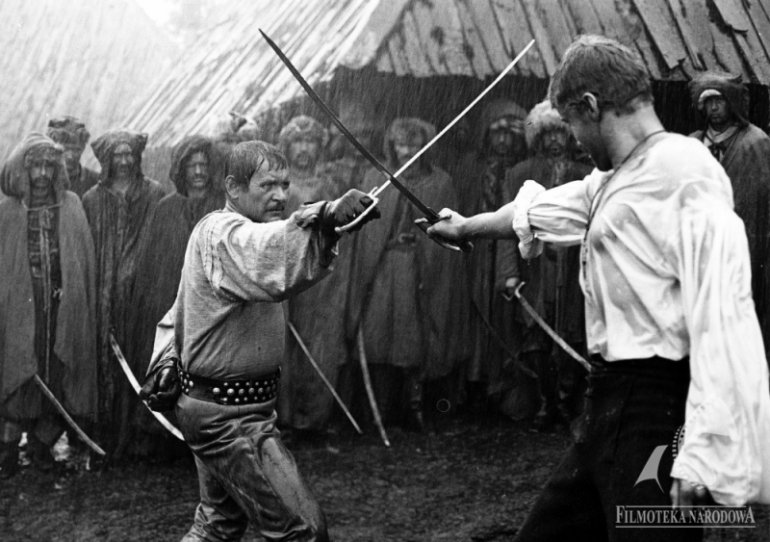I'd say that Dolno is on topic because this is a thread about Polish independence which therefore encompasses Polish identity and culture. The art of using a sword was very much part of that right into the 20th century but like so many true Polish traditions it's been largely lost. Ironside's comments demonstrate the ignorance of even a middle aged Polish person about some aspects of Polish identity. So when people march on 11 November what are they celebrating exactly, what does it mean to be Polish as opposed to French or German or Russian?
@Dolno, Mr Atch's grandfather was also in the cavalry but obviously a later generation than your own grandpa. Mr Atch's granny still has his cavalry sword. Did I ever tell you the tale of the rat?? When Mr Atch was a baby his grandparents were 'minding' him as we'd say in Ireland and granny put him out in the garden in a sort of Moses basket to get the fresh air and sunshine. Apparently a rat came along and was sitting on his chest. Grandpa ran into the house, grabbed his sword from the wall, rushed back to the garden and decapitated the rat where it sat. Cue outburst of hysteria from Granny 'you old fool, etc' :)) But such was the skill and precision of a Polish swordsman.
Apparently "the combat traditions of Polish cavalry are continued by the armoured (Kawaleria Pancerna) and aeromobile (Kawaleria Powietrzna) units of Polish Land Forces. " But I bet you won't see them at the Polish Independence Day March and they should be, in my opinion.
not shooting
You're missing the point. Swordsmanship was not frowned upon because it was a form of combat skill but because it was an old Polish tradition associated with the nobility and the Commies didn't like that. Look at how hard they worked to wipe out the Polish officer class and intelligentsia. They tried to do the same thing to Poland as they did to Russia. A kind of genocide. Kill them or force them into exile. It was the Commies who disbanded the Polish Cavalry.
 PolishForums LIVE / Archives [3]
PolishForums LIVE / Archives [3]

